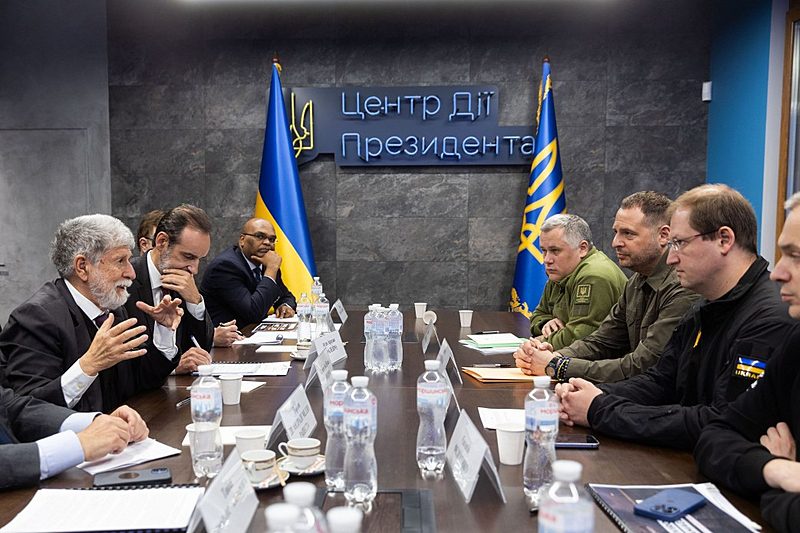Let’s imagine a mathematical equation laid out like this: (Ukraine + USA + NATO and allies) against Russia / China and Brazil. The result would still be an unknown. The fact is that nobody knows how this war will end, nor when. UN Secretary-General António Guterres has sentenced: peace is far off, because both sides in the conflict are still “convinced that they will win.
(RFI) Given these expectations, the Brazilian government’s insistence on talking about peace may seem like empty rhetoric, although accompanied by China. But it is not quite like that. In matters of geopolitics and diplomacy things are more complex.
The Brazilian position of not sending weapons to Kiev may arouse criticism from the United States and its European allies. But these criticisms, curiously enough, are more vehement among the governed than among the rulers. The fact is that wherever President Lula and his special advisor Celso Amorim go, they are received with open arms, with or without criticism, from Washington to Moscow, from Buenos Aires to Beijing.
Recent examples, besides Amorim’s visit to Moscow and Kiev: President Lula was officially invited by the Japanese Prime Minister to the next G7 meeting in Hiroshima, May 19-21; the Dutch Prime Minister said that he wants to explain to President Lula the position of the European countries that support Kiev, but at the same time declared that he wants to talk to him about “many other issues”.
Political Pragmatism
After the long hibernation caused by the confused and obtuse foreign policy of the previous government, now everyone wants to talk to the current Brazilian government. To put it in very pragmatic terms, much to the taste of international finance: a market of almost 220 million inhabitants cannot be left in the lurch.
Some commentators in the media usually fall into the trap of considering the Brazilian position on the war in isolation, without taking into account the whole of its foreign policy. The term that best defines it appeared in a recent article in the American magazine Foreign Affairs: “restoration” (edition of 03/23/2023, signed by Husseis Kalut, from Harvard University, and Feliciano Guimarães, from the University of São Paulo).
The Brazilian government seeks to restore the leadership position it once had in relation to the countries of the so-called “South” of the world, and for this reason maintains a policy of equidistance in relation to the current geopolitical powers and their closest allies. It seeks to restore the credibility and prestige that its diplomacy has almost always enjoyed since the second half of the 19th century, where automatic alignments were the exception, never the rule. Brazil is not a militarily relevant country in the world.
Brazilian foreign policy has always been guided by the so-called “soft power” and by multilateralism, and in the 21st century by leadership on the environmental issue, which was broken by the previous government. The Brazilian government wants to demonstrate that it can dialogue with everybody all the time.
In Europe, the Brazilian government dialogues with Emmanuel Macron in Paris and with Charles III and Rishi Sunak in London; with Olaf Scholz in Berlin, with Pedro Sánchez in Madrid, António Costa in Lisbon, and with Joe Biden, Vladimir Putin, Volodymyr Zelensky, Xi Jinping, and others.
As for the insistence on the word “peace,” well, one can expect anything in the current state of the art of geopolitics but immediate results. The world – including Europe – is definitely going through a moment of general rearmament, intensified by the war in Ukraine. In such circumstances, it is better to believe in the very Brazilian saying: “soft water on hard rock is hard enough to harden.
